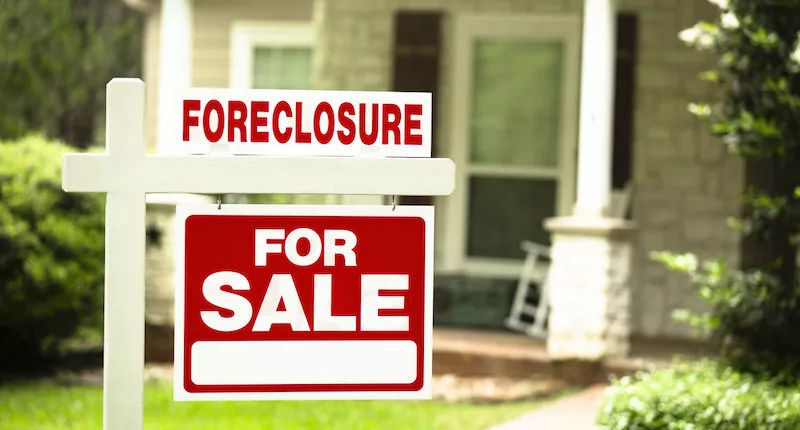What is a Trustee Sale in California?
What is a trustee sale in California? This is important to know if you’re in a foreclosure situation.
Learn more here.
Introduction
When purchasing a home, a homeowner rarely ever imagines losing it to foreclosure. Many spend years of their lives trying to build up enough money for a downpayment and a chance to lay down roots. Unfortunately, no matter how prepared you are – sometimes life can take you by surprise. It could come in the form of an unexpected medical diagnosis, the loss of an income, or even just living above your means.
Facing a foreclosure can be scary – especially when you don’t know what to expect or you don’t have an attorney on your side. So, if you have received a Notice of Trustee Sale in California, you may have questions about what it means – and what is to come. Let’s see if we can answer those for you today.
Who is a Trustee?
Before we get too deep into foreclosures and sales, let’s talk about who a trustee is and how someone gets this role.
Trustees can be any designated person, but in California, it is often the title company. And the trustee handles the money and transition of the property when needed, such as when a loan is paid off in its entirety. The trustee would dissolve the trustee and transfer the title to the owner (that’s you). Or, if the property is sold before the loan is paid, the trustee collects proceeds and pays the lender off before sending the remainder to the owner (if anything is remaining). Regardless of how the loan is paid off, the trustee will file a release.
Of course, trustees also play a significant role in a foreclosure, too.
The role of a trustee in foreclosure is not to represent the homeowner or the bank. Instead, they are a neutral party that is set to do a specific job and that is to facilitate the foreclosure process. They are to be fair and diligent with everyone involved. Keep in mind that it is not out of the ordinary for a trustee to have a connection with the bank’s side, whether the lender or their attorney. That doesn’t mean that they are looking out for the lender’s best interest. Remember, the trustee takes an oath to be an uninterested third party to the situation.
The Deed of Trust
Some states have mortgages others, including California, have Deeds of Trust. This means it acts as an agreement between the lender and the borrower. The lender will provide you with the money to purchase the home and you will sign a promissory note agreeing to repay that loan amount. In the meantime, until it is paid, there is a trustee who holds the title.
In a Deed of Trust transaction, there are three parties: The beneficiary of the deed is the lender. The trust is you – the borrower. And the trustee who holds the legal title to the property while payments are being made.
This Deed of Trust remains in effect until it is paid off. At that time, the trustee will handle any transaction of proceeds and will have a release recorded. However, when it does not get paid off, sometimes a foreclosure is necessary. And nearing the end of the foreclosure process where the home is set for auction, the trustee will handle noticing the event and distributing any monies obtained as a result of it.
Understanding the Foreclosure Timeline
To understand what a trustee sale in California is, you have to understand the foreclosure process – and where it fits in on the timeline. Below you will find the steps taken to foreclose on the home.
The foreclosure process can last about 200 days – and it starts with the first day of a missed payment.
Many lenders consider a loan in default if no payment is made in 90 days. However, for foreclosure purposes, the bank must wait 120 days before filing this default with the court – which puts your loan in official default status. As the borrower, you will get a notice of this default as well as a list of some of your available options.
The Power of Sale Clause is what gives the lender the chance to sell the home in foreclosure. It is considered a way for them to gain some of their losses. This clause can only be activated if the borrower misses at least 4 monthly loan payments. The trustee can move forward with the sale.
You have 180 days after the default is filed to get your loan in a current status. And this means paying the interest, fees, property taxes, insurance, and back payments that are owed. If you fail to do so, your home can be sent to auction. You will be notified of the sale with a Notice of Trustee Sale document that will be sent to you.
Before the auction date can take place, the bank is required to wait at least 20 days from the date that the Notice of Trustee Sale was sent to you. If this sale date gets postponed for one reason or another, you will receive a new Notice of Trustee Sale with a new sale date listed.
If the auction takes place, the proceeds received from the sale will go toward paying off the amount owed on the loan. If your foreclosure goes through the court system (which is possible but not as common), you will be held liable for any outstanding amount needed to pay the loan in full above the proceeds from the auction. If it is a more common nonjudicial foreclosure, then your responsibility for the home ends at the sale.
The Role of A Foreclosure Attorney
The foreclosure process can be scary when you don’t know what to expect or what your options are. But having an experienced attorney on your side can make the situation so much easier to handle. You may have rights you didn’t even know about!
So, if you have received a Notice of Trustee Sale or, better yet, a Notice of Default, hire an attorney. Feel confident you gave yourself every opportunity to stay in your home.
Are you in search for a certified attorney to represent you?
Let us help you find one today!


